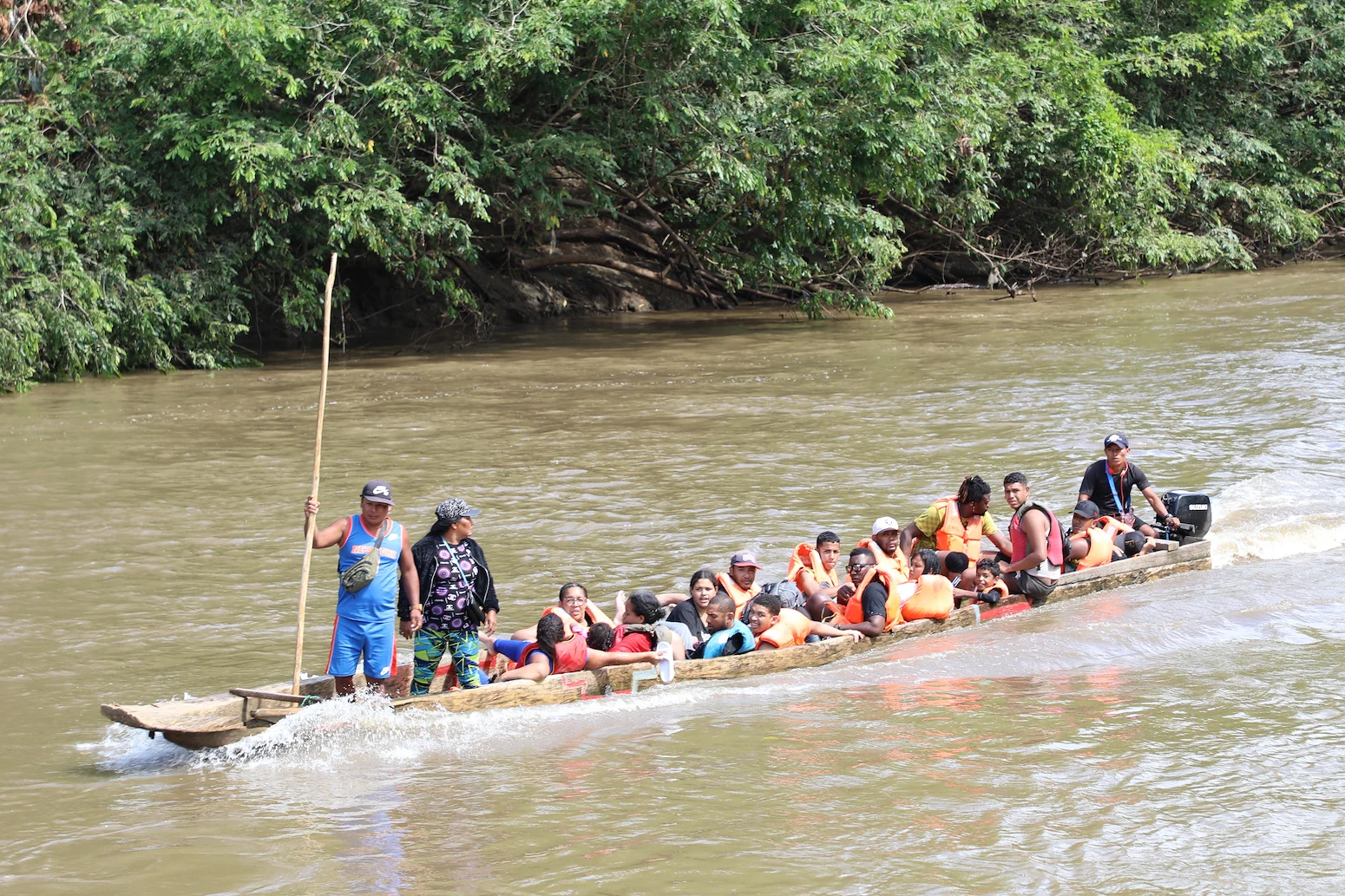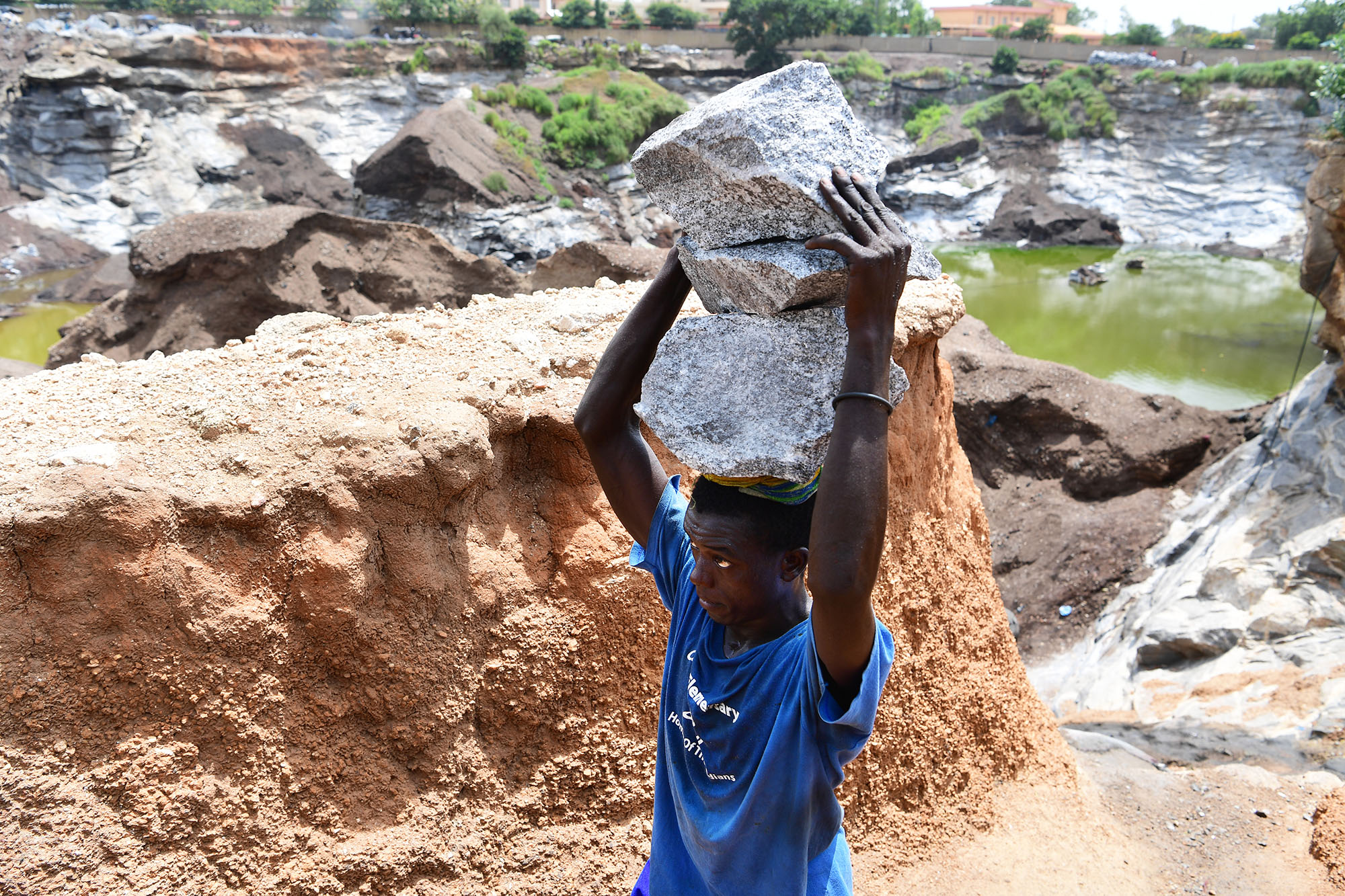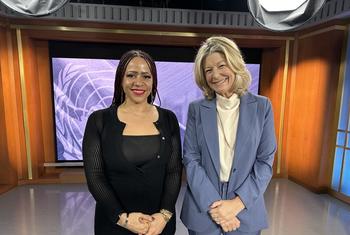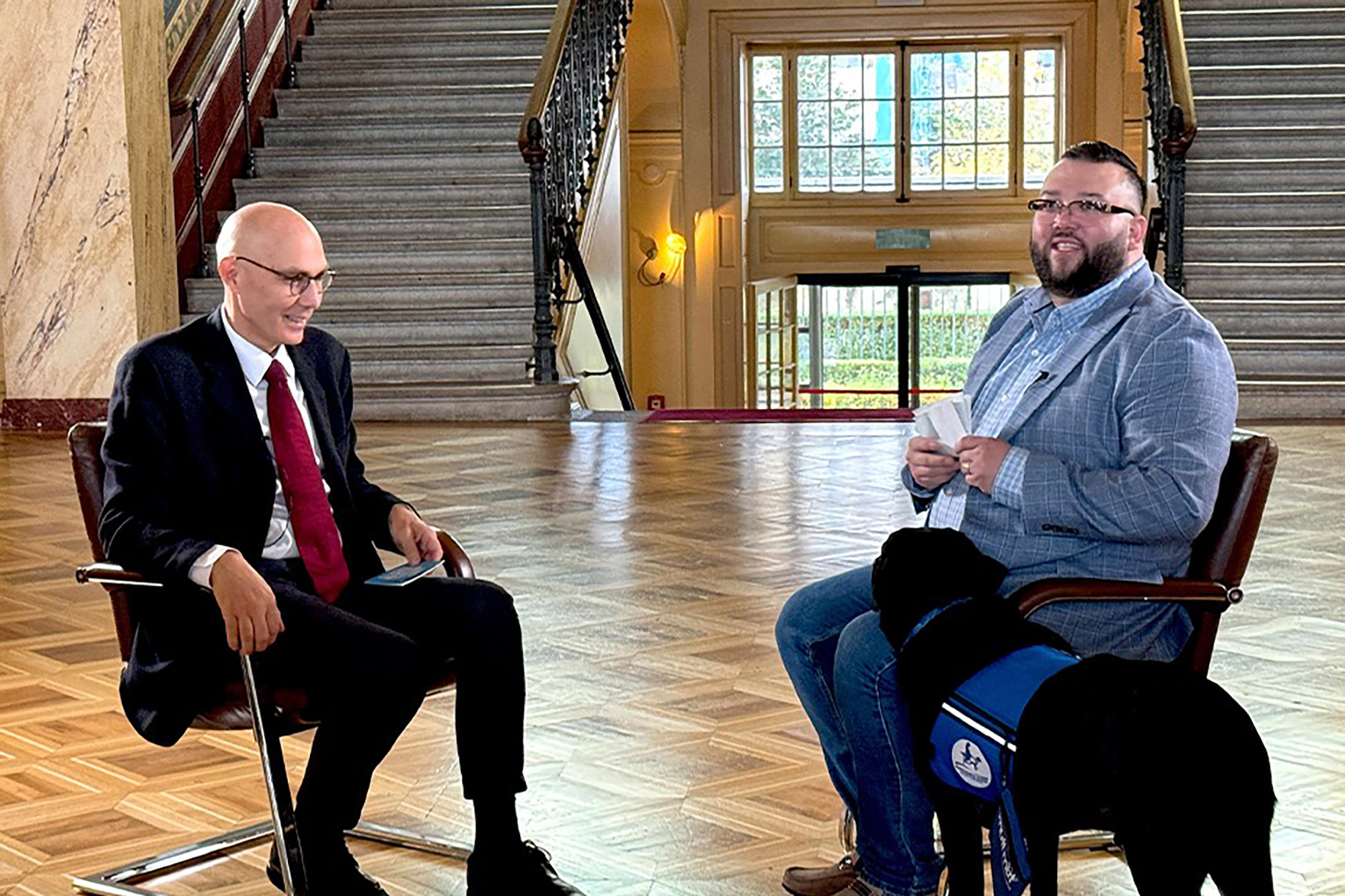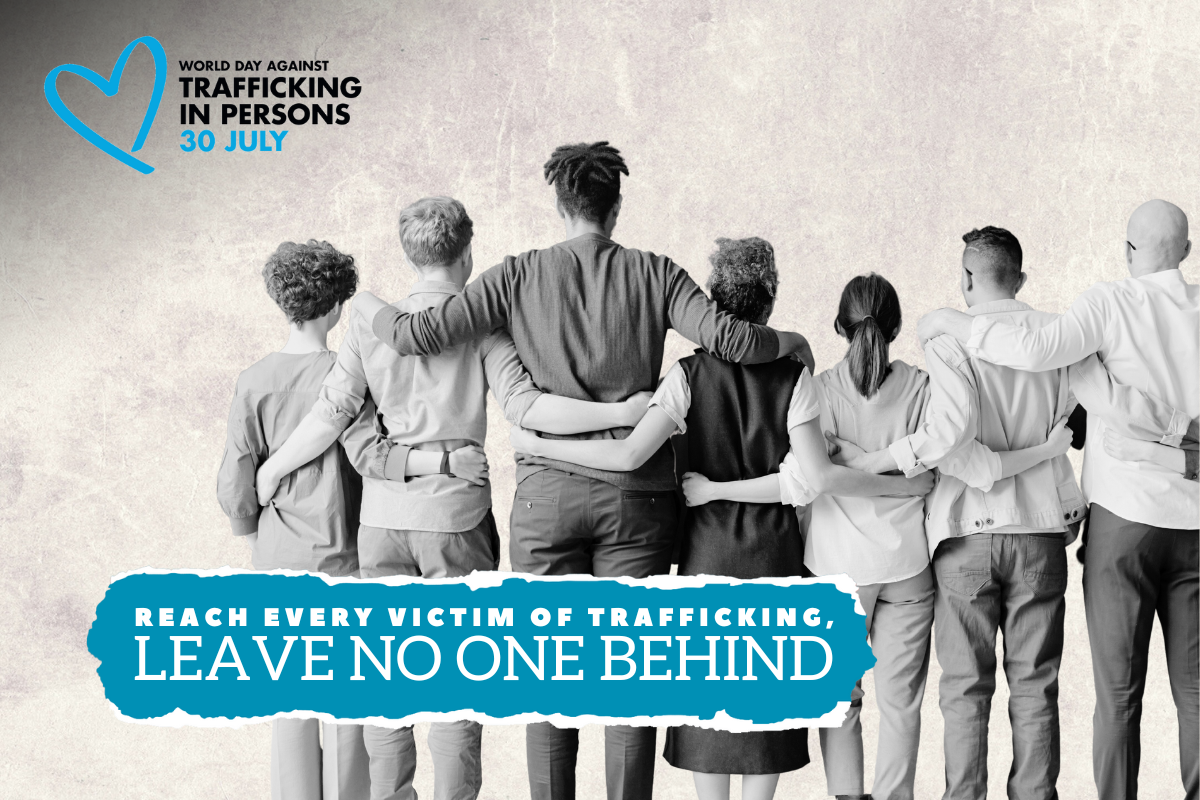A new United Nations Office on Drugs and Crime (UNODC) report reveals significant differences in how countries criminalize migrant smuggling, despite global efforts to tackle this organized crime.
Slavery and Human Trafficking
Reparations for the crimes of the transatlantic slave trade “can’t be quantified” given the vast historical sweep of human history, according to the first Black African to be awarded the Nobel Prize for Literature, Wole Soyinka.
The longtime Nigerian democracy activist was at UN Headquarters in New York to take part in commemorations for the International Day of Remembrance of the Victims of Slavery, telling the General Assembly that it remains crucial to confront centuries of wrongdoing.
Ana Carmo sat down with him in our UN News studio following the event and asked him to outline his main message to the international community.
Gorée Island, serves as a solemn reminder of the transatlantic slave trade, where heritage preservation and daily life coexist, highlighting its significance in preserving the painful history for future generations, with the Maison des Esclaves standing as a powerful testament to the past.
Recognizing the atrocities of the transatlantic slave trade is crucial for confronting our history, repairing current injustices, and creating a future that respects dignity and fairness for everyone. It is essential to establish reparative justice measures that confront this past and its ongoing effects recalls the UN Secretary-General for the International Day of Remembrance of the Victims of Slavery and the Transatlantic Slave Trade (25 March). Today, the General Assembly commemorates the Day with Nobel Prize Laureate in Literature Wole Soyinka as keynote speaker. Watch live on UN WebTV.
On the International Day for the Abolition of Slavery, we remember that 50 million people worldwide are victims of human trafficking, forced labor, sexual exploitation, and forced marriage. These abuses violate human rights and hinder development. The recently adopted Pact for the Future aims to eradicate forced labor, modern slavery, and child labor. To turn this vision into action, governments must strengthen law enforcement and support victims, while businesses should ensure ethical supply chains and fair labor practices. Together, we can combat and abolish modern slavery in all its forms.
Between the 16th and 19th centuries, around 27 million Africans were forcefully taken from their homes and shipped across the Atlantic. Only 7.4 million reached their destination, where they faced exploitation and abuse. The impact of the slave trade persists, perpetuating racism and inequality. UNESCO established 23 August as the International Day for the Remembrance of the Slave Trade and its Abolition to bring attention to the history of enslavement. On this day, let's pay tribute to the victims and freedom fighters by renewing our commitment to eradicating racism and discrimination.
Amid the arid landscapes of Zinder, a migration-prone area in central-eastern Niger, 11-year-old Zara's journey back home sheds light on the battle against child trafficking. Zara was sent to Algeria by her mother to find work but was intercepted during the journey. According to the International Organization for Migration (IOM), more than half of the child victims reported the involvement of friends and family in their recruitment into trafficking, especially where extreme poverty is common. The Centre for Victims of Trafficking, managed by the National Agency for the Fight against Trafficking in Persons and Illicit Migration with support from IOM, has become a sanctuary for survivors like Zara.
Globally, one in three victims of human trafficking is a child, and the majority of these trafficked children are girls. According to the UN Office on Drugs and Crime (UNODC), children are twice as likely as adults to face violence during trafficking. The proliferation of online platforms poses additional risks, as children often connect to these sites without adequate safeguards. The World Day Against Trafficking in Persons (30 July) calls on States to prioritize the protection of children, strengthen laws, improve law enforcement and provide more resources to combat child trafficking.
Didier Drogba cautions young African footballers on the perils of exploitation and human trafficking as part of a campaign by the International Labour Organization, FIFPRO, and the Didier Drogba Foundation, aiming to raise awareness and protect aspiring players.
The transatlantic trade in enslaved Africans represents one of the most horrific eras in human history. For four hundred years, enslaved Africans fought for their freedom, while colonial powers and others committed horrific crimes against them. On the International Day of Remembrance of the Victims of Slavery and the Transatlantic Slave Trade (25 March), the United Nations honors the millions of Africans who were trafficked and enslaved. To mark the occasion, the General Assembly will hold a meeting and the UN Outreach Programme will host two new exhibits highlighting the horrors of slavery.
Earlier in December, the UN Department of Global Communications hosted Knowledge, History and Power, an event featuring noted journalists Nikole Hannah-Jones and Laura Trevelyan. The event was organized by the Department of Global Communications Outreach Programme on the Transatlantic Slave Trade and Slavery in collaboration with the Universities Studying Slavery Consortium.
Pauline Batista from UN News talked to both award-winning journalists about the challenges, hopes and dreams for “the future of reparations,” in the United States and globally.
Photo Credit: UN News/Pauline Batista
"Justice gives relief not only to the victims, but to a prosecutor as well. So that is what keeps you upright and keeps you going on and says, okay, it is meaningful what you're doing."
Christian Ritscher’s work brings him into contact with some of humanity’s worst outrages. As head of the UN investigative team to promote accountability for the crimes committed by ISIL in Iraq, he seeks justice for victims of the notoriously violent terror group.
The Islamic State, or ISIL, stands accused of war crimes, crimes against humanity and genocide. Iraq’s Yazidi community were among those worst hit.
In this episode Christian Ritscher reflects on the impact on survivors, the difficulty of gathering testimony and on keeping faith in humanity when faced with its darkest acts.
Photo: ©UNITAD
Suamhirs Piraino-Guzman was 14 years old when he was trafficked from his native Honduras and smuggled by his captors into California. He was held prisoner and regularly drugged, alone in a dark and windowless room where he endured unimaginable suffering. Today, almost 20 years later, as an adult male survivor of child sexual exploitation and trafficking he has become an outspoken public advocate and an active member of survivors’ networks. He has also entered his second year as Chair of the Board of Trustees of the UN Voluntary Trust Fund on Contemporary Forms of Slavery. For 30 years, the Trust has been accompanying survivors by donating money to grassroots organizations that provide healthcare, shelter, food, legal aid, vocational training, education, income-generating activities and other support. In 2023, the Fund has aided more than 7,000 people.
Global crises, conflicts, and the climate emergency are escalating trafficking risks. Displacement and socio-economic inequalities are impacting millions of people, leaving them vulnerable to exploitation by traffickers. National responses, particularly in developing States, appear to be deteriorating. This World Day Against Trafficking in Persons (30 Jul) aims to raise awareness of the disturbing developments and trends identified by UNODC and calls to assess and enhance efforts to strengthen prevention, identify and support victims, and end impunity.
History belongs to all of us. The Slavery Remembrance Exhibition from Amsterdam’s renowned Rijksmuseum is on display at United Nations Headquarters.

